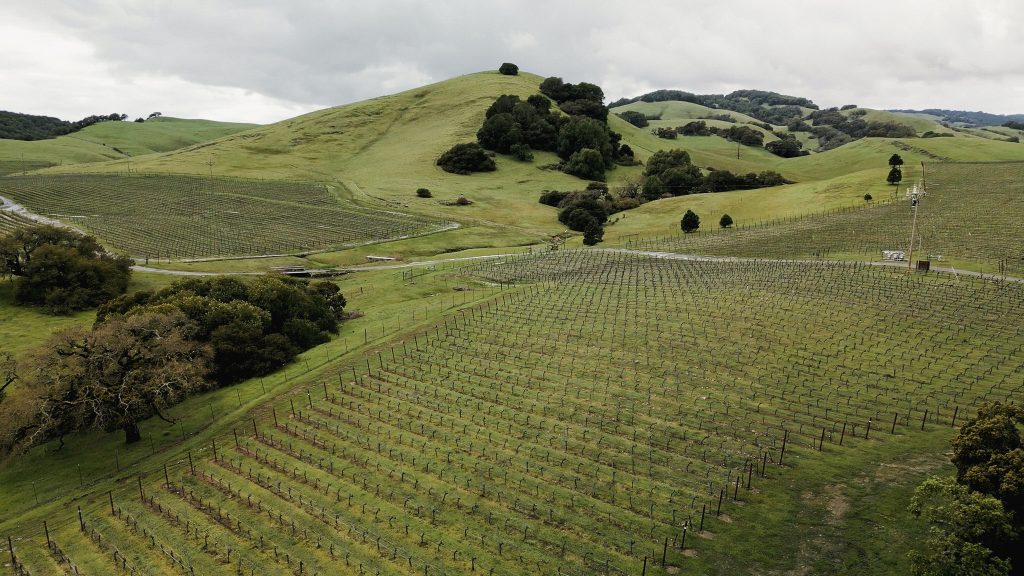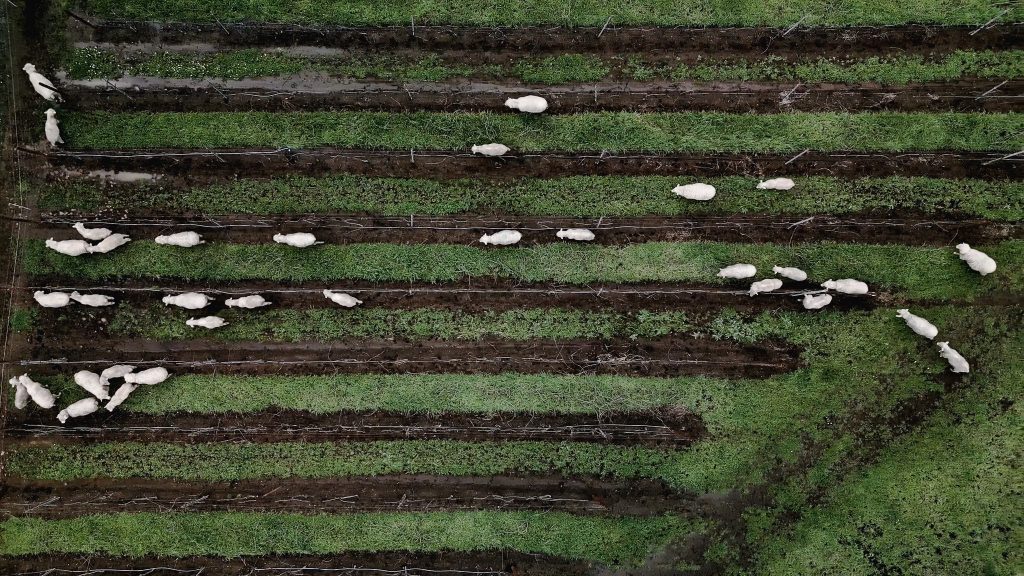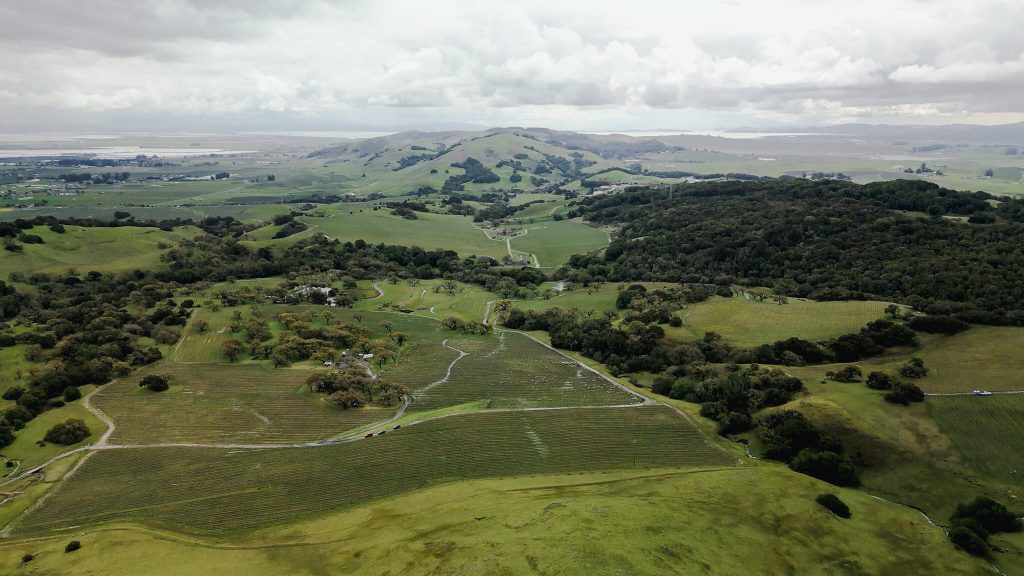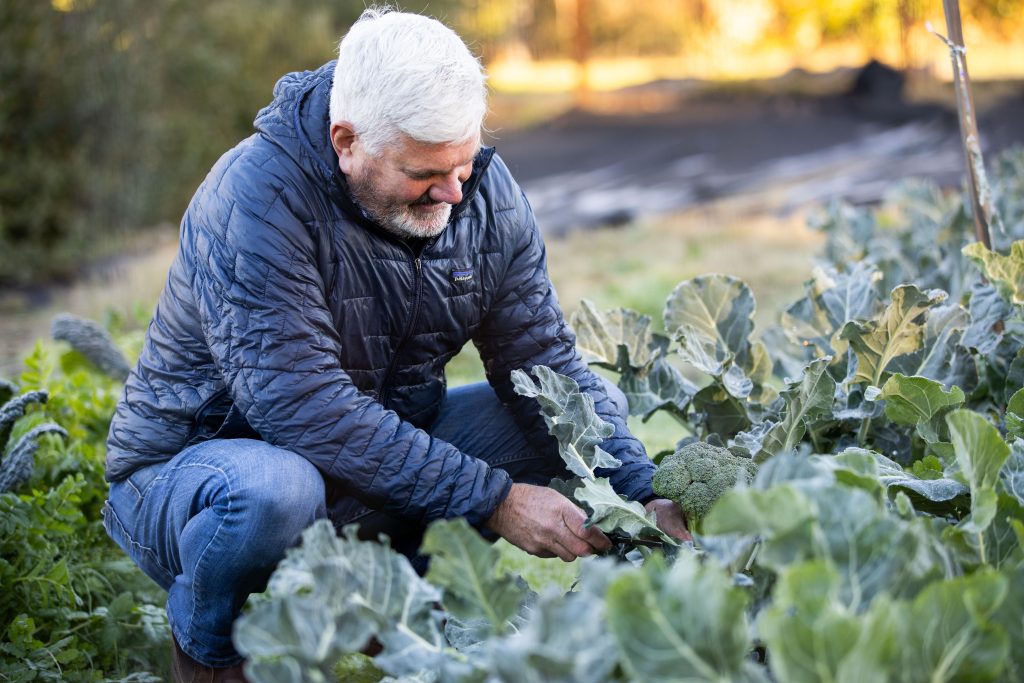In Conversation With Jon Priest

At Etude Wines, philosophy is paramount to the process. That is, long before a single grape is picked, winemaking must begin in the vineyard. The core belief is that where there is inspired grape-growing, there is a diminished need for intervention by a winemaker, and that superior wines that are grown, not made.
Haute Living San Francisco met with a principal architect of this philosophy. Here we’re in conversation with Jon Priest, Senior Winemaker and General Manager of Etude Wines for more than 20 years. Known as a world-class producer of Pinot Noir, he explains how Etude is also a leader in the sustainable winemaking practices that provide a foundation for stewardship.
HL: You wear a lot of hats; in addition to being the winemaker, you’re the general manager across the full Etude property. Let’s talk about the stewardship of the land…including the sheep.

JP: That’s right, I like to say I have one foot in the vineyard and the other in the cellar, and it’s a role I feel incredibly fortunate to play. At Etude, stewardship of the land is the foundation of everything we do. The vineyard is a living system, and our job is to keep the various ecosystems healthy and balanced so it can thrive for generations to come. For example, we partnered with the Napa Resource Conservation District to restore the creek at the winery with native plans. Property guests can also enjoy Monarch butterflies roaming the property from plants we’ve cultivated from the Xerces Society.

The sheep you mentioned are a perfect example of how we protect and encourage healthy living soil to minimize the impact we have on the land. They graze through our vineyards during the off-season, helping manage the native grass growth naturally, reducing the need for mechanical mowing, enriching the soil, and reducing our carbon footprint. It’s a nod to old-world practices that still hold a lot of wisdom today.
HL: Etude is exemplary in its approach to sustainability. Is it fair to say that this type of farming to produce exceptional grapes for wine production is a discipline—never a shortcut?
JP: Absolutely, sustainability is a long game, and there are no shortcuts. Etude was founded on the philosophy that winemaking begins in the vineyard long before the harvest, and that superior grape growing diminishes the need for intervention by the winemaker, resulting in wine that is grown, not made. This remains our core practice today as respect for the natural processes that give us great wine. We’re constantly observing, listening to the land, and responding thoughtfully rather than reactively.

At Etude, we’re proud to hold our Certified California Sustainable Winegrowing and Napa Green Winery certifications. It’s easy to talk about sustainability, but it takes real discipline to practice it consistently, whether that’s building healthy soils, managing water use, or thinking about our energy footprint. Everything we do is guided by the belief that responsible farming leads to not only better wine, but a better future.
HL: What does it mean when you refer to Etude as having a holistic approach with a focus on biodiversity (wetland restoration, woodland, wildlife, pollinators, and more)?
JP: For us, a holistic approach means treating the vineyard as part of a much larger ecosystem. Wine doesn’t come from vines alone; it comes from the entire environment that supports those vines. At Etude, we’ve restored wetlands, protected woodlands, and cultivated habitats for pollinators and local wildlife.
Supporting the land’s biodiversity means managing pests naturally, improving soil health, and adapting to a changing climate; it’s all interconnected. When you walk through Grace Benoist Ranch, you’re not just walking through a vineyard; you’re walking through a vibrant ecosystem that’s teeming with life. That’s the kind of balance we strive for. The healthier, more vibrant our land, the better the wine will be!

HL: At the end of the day, Mother Nature is in charge. How do you navigate the variables of weather and climate change?
JP: As winemakers and farmers, we’re at the mercy of Mother Nature, always adapting and never assuming. Climate change has brought real challenges: unpredictable weather patterns, more intense heat events, and shifts in growing seasons.
To navigate that, we’ve leaned even more into data, observation, and flexibility, especially in the two main areas of climate change: energy and water. We’ve transitioned to 100% renewable electricity and installed a solar array that covers over 90% of our needs on-site. We also closely monitor the needs of our vines to irrigate precisely and only when necessary. At the winery itself, we’ve installed water-wise landscaping and used locally recycled water to mitigate groundwater extraction. At the end of the day, we’re here to be good stewards— for the land, the wine, and the people who enjoy it.
HL: Can visitors to Carneros learn more about sustainability and stewardship during a wine tasting at Etude?

JP: Absolutely, we love sharing this story with our guests. Our tastings are designed to connect people to the land, to the wine, and to the practices that shape them both. Whether it’s through The Study of Pinot experience, an in-depth Terroir Experience, or a walk through our new Outdoor Plaza, guests get a firsthand look at how sustainability plays out in real time.

My favorite tasting for fully understanding Etude’s sustainability story is the Etude Tour & Tasting which, as the name implies, guides guests through Etude’s property, including the Wellness Garden, Outdoor Plaza, winery and mezzanine, all while sipping Etude wines. During the tour guests will learn about the various sustainability practices that apply to each area, such as how we’ve replaced water-intensive grass with native plants, how we use recycled materials, and how each glass of wine is tied to a larger commitment to the planet.
Visit Etude Winery. Appointments are recommended and same day appointments are available. Open daily from 10 a.m. – 4 p. m. at 1250 Cuttings Wharf Road, Napa.
images: Courtesy of Etude Winery
